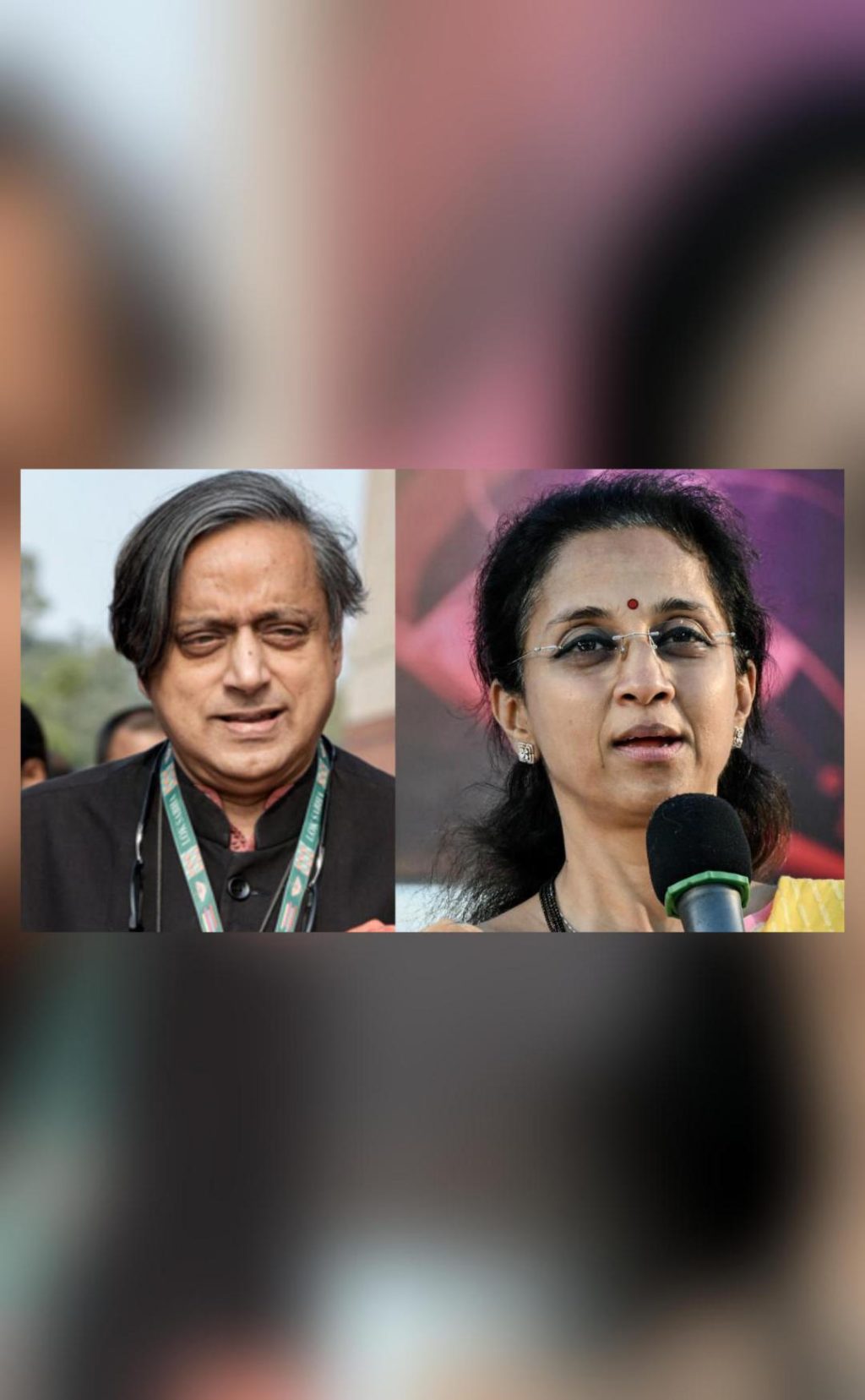
Tharoor, Sule & others to head govt’s global delegations after Operation Sindoor
In a significant move, the Indian government has chosen a delegation of prominent leaders to visit key partner nations and spread the strong message of zero-tolerance against terrorism globally. This move comes immediately after the successful Operation Sindoor, which saw the Indian military launch a swift and decisive operation to neutralize a terrorist threat.
The leaders chosen to head these delegations are some of the most respected and influential figures in Indian politics. Congress MP Shashi Tharoor, known for his eloquent oratory skills and strong diplomatic credentials, will lead the delegation to the United States. NCP-SP MP Supriya Sule, a young and dynamic leader from Maharashtra, will visit the European Union. Shiv Sena’s Shrikant Shinde, a rising star in the party, will lead the delegation to Israel, while DMK’s Kanimozhi, a stalwart of the Dravida Munnetra Kazhagam, will visit the African Union.
BJP’s Baijayant Panda, a seasoned parliamentarian, will lead the delegation to Japan, while RS Prasad, a veteran politician and former Union Minister, will visit the Commonwealth of Nations. JDU’s Sanjay Jha, a popular leader from Bihar, will represent India at the South Asian Association for Regional Cooperation (SAARC) region.
The decision to send these delegations comes in the aftermath of Operation Sindoor, which saw the Indian military launch a coordinated operation to neutralize a terrorist threat in the country. The government has hailed the operation as a huge success, and has emphasized that it sends a strong message to terrorists and their backers that India will not tolerate any form of terrorism.
The leaders chosen for these delegations are some of the most respected and influential figures in Indian politics. Each of them brings a unique set of skills and experiences to the table, and is well-equipped to represent India’s interests on the global stage.
Shashi Tharoor, a former Minister of State for External Affairs, is known for his strong diplomatic credentials and his ability to engage with international leaders and organizations. As the leader of the delegation to the United States, he will be able to build on the strong ties that exist between the two countries, and to further strengthen the partnership between India and the US.
Supriya Sule, on the other hand, is a young and dynamic leader who has quickly made a name for herself in Indian politics. As the leader of the delegation to the European Union, she will bring a fresh perspective and a new energy to the table. Her visit will focus on strengthening ties with the EU and promoting cooperation on issues such as trade, security, and climate change.
Shrikant Shinde, a rising star in the Shiv Sena, will lead the delegation to Israel, a country with which India has traditionally enjoyed strong ties. His visit will focus on strengthening the partnership between the two countries, and on promoting cooperation on issues such as defense, security, and trade.
Kanimozhi, a stalwart of the DMK, will lead the delegation to the African Union, a region with which India has been trying to strengthen its ties in recent years. Her visit will focus on promoting cooperation on issues such as trade, security, and development, and on deepening the partnership between India and the African Union.
Baijayant Panda, a seasoned parliamentarian, will lead the delegation to Japan, a country with which India has been trying to strengthen its ties in recent years. His visit will focus on promoting cooperation on issues such as defense, security, and trade, and on strengthening the partnership between the two countries.
RS Prasad, a veteran politician and former Union Minister, will lead the delegation to the Commonwealth of Nations, a regional organization that includes many of India’s closest partners. His visit will focus on promoting cooperation on issues such as development, security, and climate change, and on deepening the partnership between India and the Commonwealth.
Sanjay Jha, a popular leader from Bihar, will lead the delegation to the SAARC region, a region that includes many of India’s closest neighbors. His visit will focus on promoting cooperation on issues such as trade, security, and development, and on strengthening the partnership between India and the SAARC region.
In conclusion, the decision to send these delegations is a significant move by the Indian government, and one that sends a strong message to terrorists and their backers that India will not tolerate any form of terrorism. Each of the leaders chosen for these delegations brings a unique set of skills and experiences to the table, and is well-equipped to represent India’s interests on the global stage.
As they embark on their journeys, they will carry with them the strong message of zero-tolerance against terrorism, and will work to build stronger ties with key partner nations around the world. The government’s decision to send these delegations is a clear indication of its commitment to fighting terrorism, and to promoting India’s interests on the global stage.






